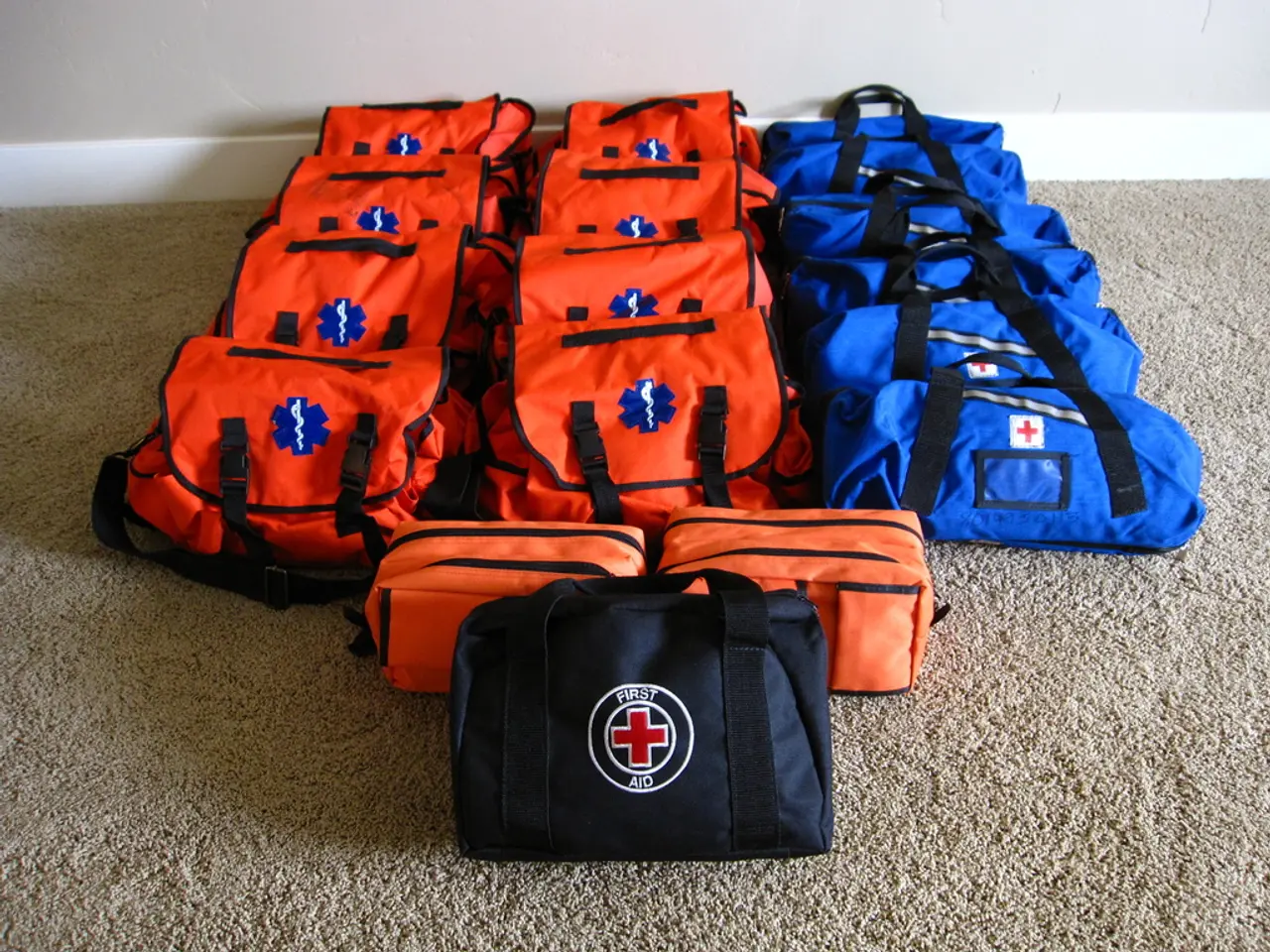Revival Techniques: Annual Lifesaving Potential for Emergency Responders Reaches 10,000
In a groundbreaking study, the ADAC Foundation in Munich has found that up to 10,000 lives in Germany could be saved annually if bystanders provided immediate first aid to those experiencing a cardiac arrest. The study, which highlights the need for a 'culture of resuscitation', suggests several measures to improve the response to cardiac emergencies.
Currently, only about 11% of those who experience a cardiac arrest outside of a clinic survive. This statistic is concerning, given that around 136,000 people experience a sudden cardiac arrest each year in Germany, with nearly 70,000 being resuscitated outside of a clinic last year.
One of the key recommendations of the study is the promotion of volunteering in first responder structures. By encouraging more individuals to become trained in CPR and the use of defibrillators, the chances of survival for those experiencing a cardiac arrest could significantly increase.
Another proposal is the establishment and funding of apps to alert qualified first responders in the vicinity in case of an emergency. These apps, which are already in use in half of Germany, could be expanded to cover the entire country, ensuring a faster response time.
The study also emphasizes the importance of a national registry to record the locations of defibrillators and distribute them as needed. Currently, defibrillators are not systematically distributed, and their locations are not centrally recorded, which can lead to valuable time being wasted in locating them during an emergency.
In addition, the study suggests incentives for regular CPR training for adults. At present, only 9% of laypeople have performed CPR at least once in their lives, and three-quarters of the population do not have up-to-date CPR knowledge. Mandatory CPR training in schools, which is already in place in all German federal states except Hamburg, could also play a crucial role in improving these figures.
However, the study's authors stress that this does not have to be the case. By implementing these recommendations, Germany could see a significant reduction in the number of cardiac arrest-related deaths each year.
The study also addresses the issue of telephone CPR. While making telephone CPR legally mandatory through emergency services could save lives, its implementation is not consistent. The study calls for a more systematic approach to telephone CPR to ensure that it is available to those who need it.
Despite the potential benefits of bystander intervention, 37% of the population would not provide assistance in an emergency. This highlights the need for a cultural shift towards a 'culture of resuscitation', where everyone feels confident and equipped to help in an emergency situation.
In conclusion, the ADAC Foundation's study provides a comprehensive roadmap for improving the response to cardiac emergencies in Germany. By implementing its recommendations, the country could save thousands of lives each year. It is now up to policymakers and the public to take action.
Read also:
- Is it advisable to utilize your personal health insurance in a publicly-funded medical facility?
- Dietary strategies for IBS elimination: Aims and execution methods
- Benefits, suitable dosage, and safety considerations for utilizing pumpkin seed oil in treating an overactive bladder
- Harmful Medical Remedies: A Misguided Approach to Healing




